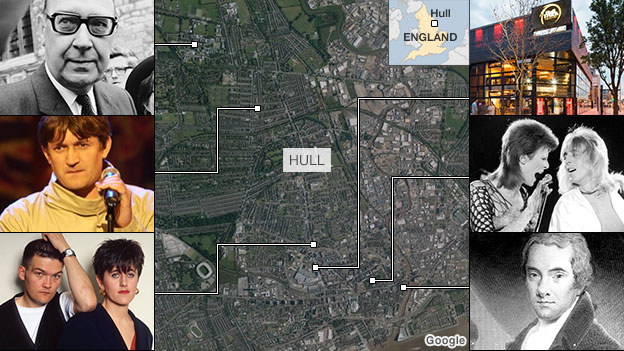A beginner's guide to culture in Hull
- Published
[an error occurred while processing this directive]
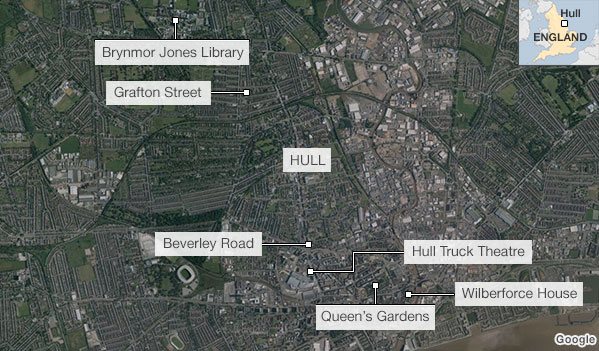 [an error occurred while processing this directive]
[an error occurred while processing this directive]
Poet Philip Larkin
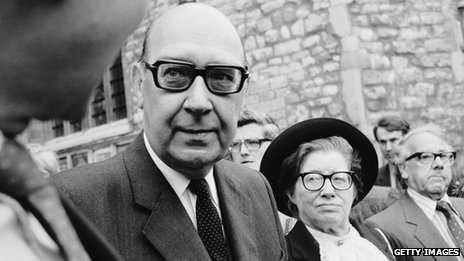
One of the most celebrated poets of the twentieth century, Larkin moved to Hull after graduating from Oxford and worked as a librarian for 30 years at the Brynmor Jones library, where he produced most of his published work. A statue of Larkin, who died in 1985, stands in Hull train station.
The Housemartins
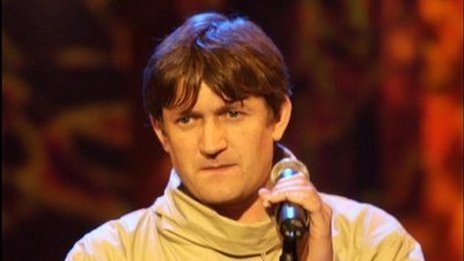
Lead singer of The Housemartins, Paul Heaton, moved to Grafton Street in west Hull in 1983 after a brief stop in the city. He lived there for 20 years and went on to find more success with the band Beautiful South, while bassist Norman Cook found fame as DJ Fatboy Slim.
Everything But The Girl
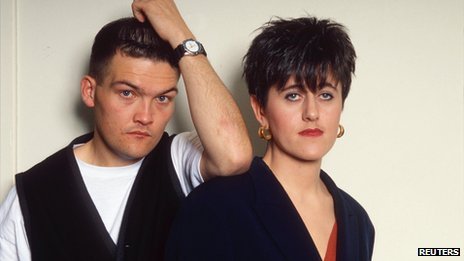
Tracey Thorn and Ben Watt met at university in Hull and took their band name from Turners, a furniture shop on Beverley Road which had the slogan, Everything but the girl, posted above its shop window.
Hull Truck Theatre
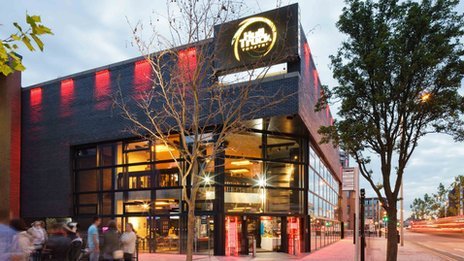
The company was formed in a squat in a terraced house close to the station, the office was a phone box nearby. It is now in a £15m purpose-built theatre – just a mile down the road. The company flourished under playwright John Godber, but recently it has struggled financially.
Mick Ronson
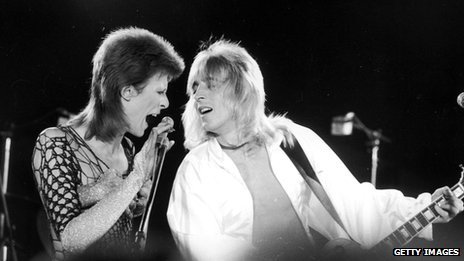
The legendary guitarist once worked as a council gardener at Queen’s Gardens. He performed as one of the Spiders From Mars with David Bowie on the Ziggy Stardust album. He died of liver cancer in 1992 and his widow is supporting a campaign to raise money for a statue to place in the gardens in his memory.
William Wilberforce
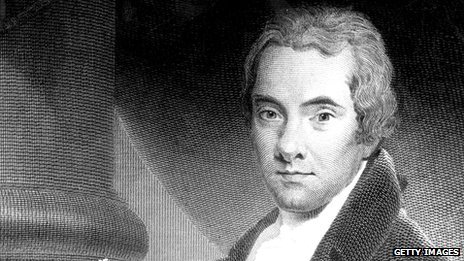
Described as Hull’s most famous son, politician William Wilberforce is best known as a pioneering anti-slavery campaigner. He led the movement against the British slave trade until it was abolished in 1807 and continued to support the campaign to free all slaves in the British Empire, which finally became law in 1833.
Hull has won the title of UK City of Culture 2017. The city is not often associated with its cultural pedigree - but has a rich history of nurturing artists and artistic movements. The highlights include:
Philip Larkin, who lived in the city for 30 years and found fame as a poet while working as a librarian at the University of Hull. Larkin produced most of his published poetry while living in the city. A statue of Larkin, who died in 1985, stands in the city's train station.
In 1982, Larkin wrote a foreword to an anthology of works by local poets. He wrote: "Hull has its own sudden elegancies. People are slow to leave it, quick to return. And there are others who come, as they think, for a year or two, and stay a lifetime, sensing that they have found a city that is in the world yet sufficiently on the edge of it to have a different resonance."
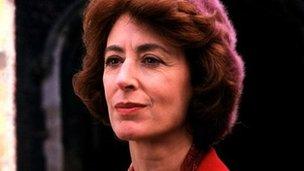
Hull's most famous sons and daughters include actor Sir Tom Courtenay, who narrated that Larkin passage for a video, external supporting Hull's City of Culture bid, and actress Maureen Lipman (pictured).
The Ferens Art Gallery, external broke visitor records with a Da Vinci exhibition last year, which attracted more than 5,000 people in its first week alone. A David Hockney exhibition in 2011 featuring his bright East Yorkshire landscapes also attracted thousands of visitors. The gallery recently bought 14th Century masterpiece Christ between Saints Paul and Peter by Italian artist Pietro Lorenzetti. The £1.6m deal was described as the gallery's most significant in more than 50 years.
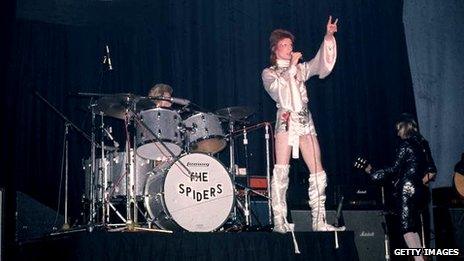
In music, The Spiders from Mars, external, David Bowie's band when he performed as Ziggy Stardust (above), were from Hull. Guitarist Mick Ronson, drummer Mick "Woody" Woodmansey and bassist Trevor Bolder had honed their craft on the local scene in the late 1960s as The Rats.
Another great Hull band were The Housemartins, who broke through in 1986 with their debut album London 0 Hull 4. The band later transformed into The Beautiful South.
Everything But the Girl, external's Ben Watt and Tracey Thorn met at university in Hull and took their name from the sign on a furniture shop on Beverley Road.
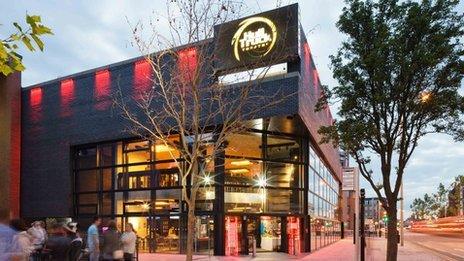
The city has a rich theatrical history, led by Hull Truck, external (above), which was formed in a squat in the 1970s and so named because they travelled in a truck. The company soon became a national force and enjoyed huge success under the leadership of playwright John Godber, external. The company moved to a £14.5m purpose-built home in 2009.
Hull Truck's future looked in doubt after Godber left in 2010, and it needed an emergency £1m Arts Council grant in 2012. With a new artistic director and executive director now installed, it looks to be getting back on an even keel.
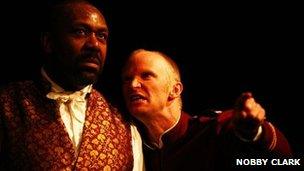
As well as Godber, whose works include Bouncers and Up 'n' Under, other celebrated playwrights to hail from Hull include Richard Bean, who was behind the National Theatre's hit farce One Man, Two Guvnors, and Alan Plater, who moved to the city as a young boy. The next generation is led by Tom Wells, whose latest play Jumpers for Goalposts was nominated for a UK Theatre Award.
Actor and director Barrie Rutter founded theatre company Northern Broadsides, external in Hull in 1992 with the aim of performing classic plays with a northern voice. The company's first production was in an old boat shed and it now regularly tours the UK, with notable productions including Lenny Henry's Shakespearean debut in Othello, external (pictured).
Theatre companies on the rise in the city include Middle Child, external, who formed with a manifesto saying society is in a "precarious situation" and declares the desire to "make work that speaks to our generation about important issues".
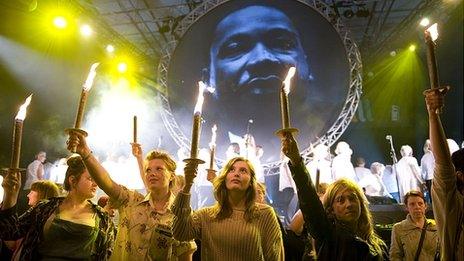
Hull's annual Freedom Festival, external (above) takes its inspiration from William Wilberforce, the local MP in the late 18th and early 19th Centuries, who led the movement for the abolition of the slave trade. The festival began in 2007 to mark the 200th anniversary of the abolition of the slave trade and this year attracted 80,000 visitors.
In the late 1960s and early 1970s, performance art troupe and musical experimenters Coum Transmissions, led by Genesis P-Orridge, gained notoriety in Hull for their improvised and chaotic sets featuring nudity, bodily fluids, live maggots and self-mutilation that took place in clubs, pubs and on the streets. After brushes with police, they moved to London and became highly influential as the industrial music pioneers Throbbing Gristle.
Hull also boasts "the worlds first and only" Museum of Club Culture, external, set up by former ID magazine photographer Mark Wigan and partner Kerry Baldry to celebrate and chronicle all aspects of clubbing. However, a plan, external to move the museum into a £40m giant revolving glitterball in the city centre may prove too ambitious, even for a City of Culture.
- Published20 November 2013
- Published14 November 2013
- Published14 November 2013
- Published14 November 2013
- Published19 June 2013
